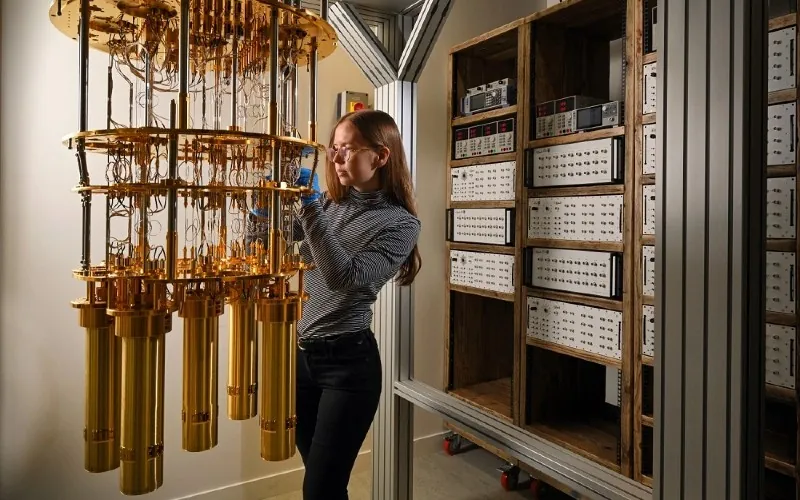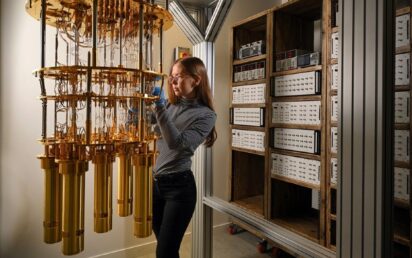Quantum Motion has raised £42 million in the largest funding round to date for a UK quantum computing startup.
The company, founded by Professor John Morton, UCL, and Professor Simon Benjamin, Oxford University, will accelerate development of silicon quantum processors by developing deeper ties with its manufacturing partners and trebling the size of its central London headquarters.
The round was led by Bosch Ventures and joined by Porsche Automobil Holding SE and British Patient Capital. All existing investors from earlier rounds (Oxford Science Enterprises, Inkef, Parkwalk Advisors, Octopus Ventures, IP Group and NSSIF) again participated.
The company has previously raised over £20m in equity and grant funding from the UK and EU.
“The support of leading technology investors enables us to realise our vision of a quantum computer built using standard foundry processes,” said James Palles-Dimmock, CEO.
“This support, along with the continuing UK national quantum programme and European initiatives, provides a step-change in our capabilities. We have assembled a world leading team and with the funding and support in place, we are ready to scale and deliver on our vision.”
Quantum computers offer an opportunity for transformative computing power with the potential to disrupt sectors ranging from energy and pharmaceuticals to finance and logistics. Universal Quantum’s Mark Webber explained the new paradigm of doing computation to us at the LEAP conference in Saudi Arabia this month.
Quantum Motion’s vision is to develop scalable quantum computers by harnessing highly advanced silicon transistor manufacturing processes.
Over the last two years the company has made a series of peer-reviewed and record-breaking achievements that underline how silicon could be the fastest, most cost-effective and scalable way of producing the millions of qubits that are needed to create fully-functional, fault tolerant quantum computers.
It has designed and validated integrated circuits capable of generating, routing and processing signals at deep cryogenic temperatures, operating down to a few tenths of a degree above absolute zero. Recent demonstrations have included the mass characterisation of thousands of multiplexed quantum dots fabricated in a tier one foundry.
Ingo Ramesohl, MD, Bosch Ventures, said: “CMOS-based (complementary metal-oxide-semiconductor) quantum computing leverages today’s sophisticated chip manufacturing processes and fabs.
“Quantum Motion has demonstrated that it can take quantum theory out of a lab into the real world to create a scalable path to a quantum future. We’re excited to join the company and break new ground in the years to come.”


